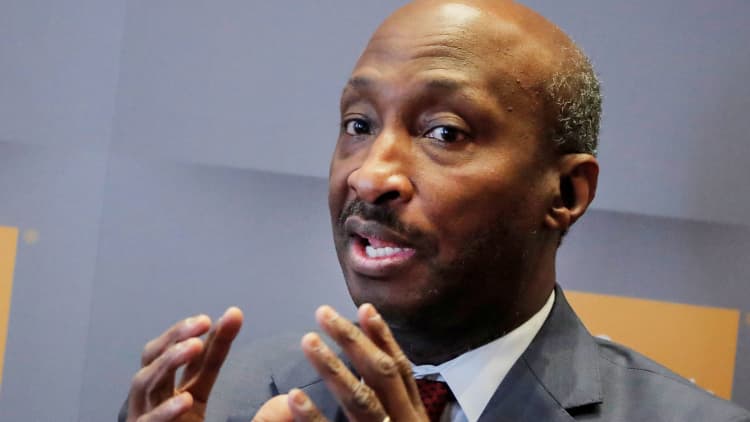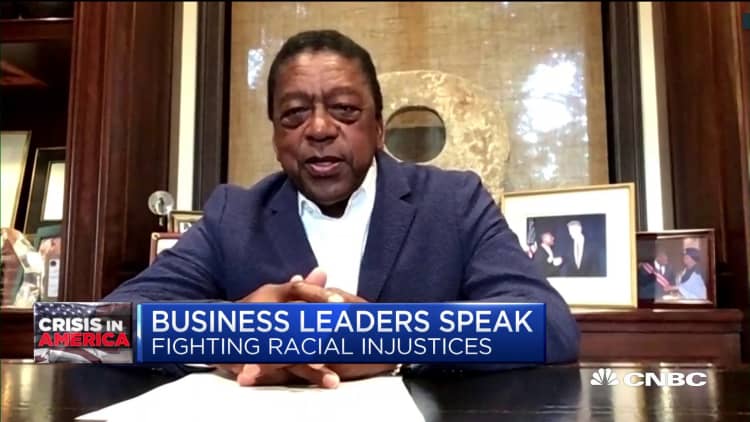
Merck CEO Kenneth Frazier told CNBC on Monday that George Floyd, an unarmed black man who died at the hands of Minneapolis police, could have been him.
"What the African American community sees in that videotape is that this African American man, who could be me or any other African American man, is being treated as less than human," Frazier said in a "Squawk Box" interview.
Protests have erupted across the United States over the death of Floyd. Derek Chauvin, a Minneapolis police officer was filmed kneeling on Floyd's neck for nearly nine minutes before Floyd died as other officers stood by. He was fired by the department and later arrested on charges of third-degree murder and manslaughter charges.
"What the community saw was, until they went out into the streets, this officer — much less even the other officers — was not even going to be arrested for what was clearly inhumane treatment of a citizen," Frazier said.
He noted racial inequities across U.S. society, from education to health care to the criminal justice system.
"Even though we don't have laws that separate people on the basis of race anymore, we still have customs, we still have beliefs, we still have policies and practices that lead to inequities," Frazier said.
As a child growing up in Philadelphia in the 1960s, Frazier, 65, was among inner-city African Americans bused out to schools more than an hour away.
"I know for sure that what put my life on a different trajectory was that someone intervened to give me an opportunity, to close that opportunity gap," he said. "And that opportunity gap is still there."
Frazier said that leaders in the business community can be a "unifying force" and have the ability to create jobs and new opportunities. More than 41 million Americans have lost their jobs since mid-March as the coronavirus pandemic upends the U.S. economy.
"Joblessness leads to hopelessness," he said. "Hopelessness leads to what we see in the streets."
Before Frazier was interviewed, Black Entertainment Television founder Robert Johnson told "Squawk Box" the U.S. government should provide $14 trillion of reparations for slavery to help reduce racial inequality.
"Now is the time to go big," the 74-year-old Johnson said.
To Frazier, change through the "polarized" U.S. political system is more difficult.
"I don't believe that we'll be able to get anything like that through our political system," he said.
As the country also grapples with the pandemic, Frazier also urged unity after the civil unrest and health crisis both pass.
"The fact of the matter is no one of us can rebuild this great country, and the good news is none of us has to do it our own," he said. "Together, we can actually make this the country that stands for the ideals that have always been behind it."



